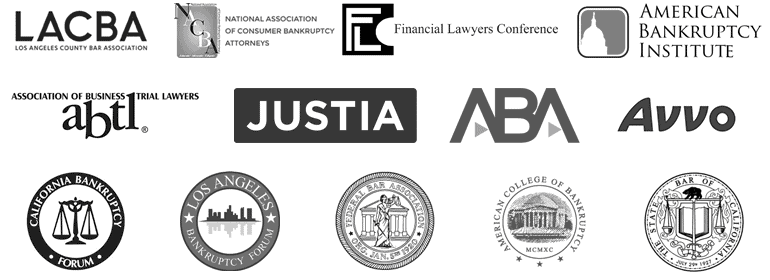INTRODUCTION
Many people have turned to bankruptcy as a solution to their financial situation. Whether to stop a foreclosure on a house, a repossession of a car or a wage garnishment, bankruptcy can provide a fresh start and allow you to rebuild your credit and get back on a healthy financial footing. Although it may be a fairly easy process to start, complications can arise that may make legal advice valuable before filing a bankruptcy petition.
DO I NEED A LAWYER TO FILE FOR BANKRUPTCY?
The bankruptcy law significantly changed in 2005, making it more difficult to file for bankruptcy protection. Although you are not legally required to have an attorney file for bankruptcy, consulting with an experienced bankruptcy attorney will help you fully understand your options and avoid potential pitfalls. For example, failure to obtain credit counseling before filing or not providing certain documents to the Court and the Trustee timely will cause your case to be dismissed. Other problems that could result include losing your home or other property you are trying to protect, that you otherwise may have been able to protect had you sought out legal advice. There are a number of bankruptcy preparer services that advertise that they can prepare and file your petition for you, however, they are prohibited from giving legal advice and they cannot represent you when a problem develops. There are a number of pro bono services that may be able to assist you if you qualify for free legal services.
WHAT ARE THE DIFFERENT KINDS OF BANKRUPTCY?
An individual filing for bankruptcy generally must decide whether to file for protection under Chapter 7, 11 or 13, depending upon the circumstances. Once a petition is filed, an estate is opened and a Trustee is appointed to oversee the administration of the case.
Chapter 7 is the liquidation chapter, also known as a “straight bankruptcy”. A chapter 7 case typically remains open for six (6) months (from filing to final decree), with a discharge being entered within ninety (90) days of the filing of the petition. All debts must be listed, regardless of whether or not you wish to continue paying them. For instance, a mortgage or car note must be listed, and if you are keeping the property, you will continue to make payments on the debt, despite the bankruptcy filing. Some debts can be reaffirmed through a Chapter 7, however, legal advice is invaluable to determine your rights and obligations when reaffirming a particular debt, as some reaffirmations may have a negative impact and adverse consequence.
Although there is no minimum or maximum debt required in order to file for bankruptcy relief, the Office of the U.S. Trustee reviews every filing for possible fraud and abuse.
There may be debts that will survive your bankruptcy, such as student loans, personal tax liability and domestic support obligations.
After your case is filed, a hearing called a “Section 341 Meeting of Creditors” is held. This hearing provides the Trustee and any creditor an opportunity to examine you under oath and confirm the information contained in your schedules. Once a Chapter 7 discharge is received, a debtor cannot file another Chapter for eight (8) years; however, they can file a different chapter if needed. If your case was dismissed, although you may be able to re-file, the automatic stay protections becomes limited unless it is extended by court order.
Chapter 11 is commonly referred to as business reorganization. Although individuals can file a Chapter 11, most filings are for businesses. Under a Chapter 11 case, the business or individual debtor remains in possession of the assets and formulates a plan to pay creditors over a period of time. The debtor in possession may divide creditors into different classes, rearrange or sell certain assets, and have certain protection while formulating a plan while remaining in business. There is no limit on the amount of debt an individual or business may have under this chapter.
Chapter 13 is another type of reorganization, commonly referred to as a “wage earners” plan. This chapter is primarily filed by someone whose house is in foreclosure, has substantial non exempt assets or income is above the median average. As with Chapter 11, a plan of reorganization is proposed to the creditors for payments from three (3) to five (5) years in length. A portion of your wages are garnished through your employer and paid to a Chapter 13 Trustee who administers the plan and pays your creditors. Under Chapter 13, a lawyer can provide assistance in maximizing your fresh start through motions with the court to revalue assets, strip liens and provide you the relief you are seeking. The eligibility limits on filing a Chapter 13 change on a yearly basis and you should consult the Bankruptcy Code or an attorney for the limitations.
IF I FILE FOR BANKRUPTCY, WILL I LOSE EVERYTHING I OWN?
No. All personal assets must be listed on the schedules filed with the court, including furniture, clothing, bank accounts, cars, jewelry and computers. You must also disclose all real estate that is titled in your name as well. An attorney experienced in bankruptcy law can explain how to list your assets properly and maximize your exemptions.
WHAT HAPPENS AFTER I FILE FOR BANKRUPTCY?
Once you file the petition there are a number of documents you must submit to the court and your Trustee within specific timeframes. Failure to comply may cause your case to be dismissed. Unfortunately, if you file without an attorney, there is no one who will tell you what has to be filed and when.
The Bankruptcy Court sends out a notice of your bankruptcy filing to all of the creditors listed in your schedules. This notice advises the creditors that you have filed for protection, which chapter you filed and advises them that an “automatic stay” is in effect, preventing creditors from pursuing any further efforts to collect the debt. This would include staying a foreclosure sale, wage garnishment and even a civil court proceeding or trial. Criminal cases are not stayed, nor are child support hearings.
Also on the notice is the date and time of your meeting of creditors and/or confirmation hearing with the court, as well as the deadline for taking certain action against creditors.
At the meeting of creditors, a Trustee, appointed by the court, will examine you under oath as to the accuracy of the information contained in your schedules. Creditors have a right to be present at this hearing and may ask you questions pertaining only to your assets and liabilities, income and expenses. If they wish to challenge a particular debt from being discharged, most creditors are required to file an adversary proceeding within sixty (60) days of the meeting of creditors in a Chapter 7 case, or the debt is discharged. The complaint must allege that the debtor made false statements or made material misrepresentations to obtain credit or a loan to name a few challenges.
In some cases, you may be able to recover money taken from you within the ninety (90) days prior to filing of your bankruptcy. It is important to note that if you are contemplating filing for bankruptcy, certain actions that you have taken to sell or transfer property within the last three (3) years may come into play in your case. An experienced bankruptcy attorney can explain this further to you.
IF I AM BEHIND ON PAYMENTS ON MY HOME OR CAR, WILL FILING FOR BANKRUPTCY PREVENT FORECLOSURE OR REPOSSESSION?
In almost all instances, creditors who are owed money on a home or car are secured creditors and possess certain rights that unsecured creditors (such as credit card companies) do not possess. For example, they have the right too foreclose on a home or repossess a car if payments are not made in accordance with the contract. A debtor who is behind on these payments can file under Chapter 11 or 13 and propose a plan to repay the arrearages. However, in all cases, the debtor must continue to make the current monthly payments to keep the property.
HOW DOES FILING FOR BANKRUPTCY AFFECT MY CREDIT?
If you file for bankruptcy, that information will end up appearing on your credit report and can remain on the report for up to ten (10) years. The bankruptcy court does not report to the various reporting agencies, and only relies on what is reported to them by various creditors. It is important to update your three credit reports and make sure that all information is accurately reported by sending them a copy of your petition and schedules to assure that all of your debts are being reported as being included in your bankruptcy. It is wise to obtain your credit reports prior to filing to insure that all of your debts are listed in your petition.
You can order a free copy of your credit report annually by visiting www.annualcreditreport.com and individually selecting each of the three credit reporting agencies. If you select a combined report you will be charged a fee for the service. Or, you can contact the agencies directly:
Equifax Credit Information Services: P.O. Box 740241, Atlanta, GA 30374; (800) 685-1111; www.equifax.com
Transunion: (877) 322-8228; www.transunion.com
Experian: (888) 397-3742; www.experian.com
HOW MUCH DOES IT COST TO FILE FOR BANKRUPTCY?
Filing fees vary, so it is important to contact the court for the most up-to-date filing fees for any particular chapter. Attorneys’ fees vary as well. It would be advisable to contact several attorneys who practice in this area of the law to determine their fees before proceeding.

